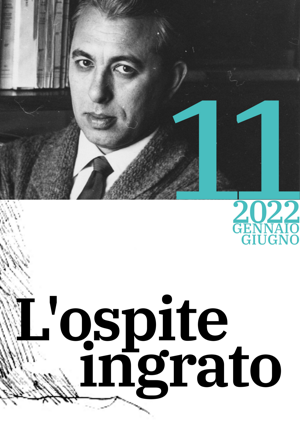Published 2022-06-23
How to Cite
Abstract
Attilio Bertolucci’s poem La camera da letto (written between the mid-1950s and the 1980s) is organised by an “I” who calls himself both the annalista and the cronista of an (auto)biographical story in which a protagonist called with the initial A. intervenes. The initial corresponds to a narrative third person, which is not exclusive because it is parallel to a voice in the first person and in inverted commas, which would be the conscience of A. The complexity of the discursive solutions for the enunciation of the subject also occurs in the generic ambiguity of the work, which is at the same time Bertolucci’s intimate autobiography, the biography of his own family, childhood and adolescent memories linked to Proustian intertextuality, and the history of a social class – the landed bourgeoisie of the early 20th century – and of a territory – Emilia and the province of Parma. It should be added that this long poem was largely drafted simultaneously with the project for the shorter poems in the collection Viaggio d’inverno (1971), because it was primarily intended for family memory, on the model of traditional family books (libri di famiglia). It will be necessary to study how the “book-form” La camera da letto can be considered a central element for Bertolucci’s poetic identity, starting from the study of its family and collective dimension, of its various modes of enunciation of the subject, and of the genesis of its macro-text for the rest of the author’s production.

